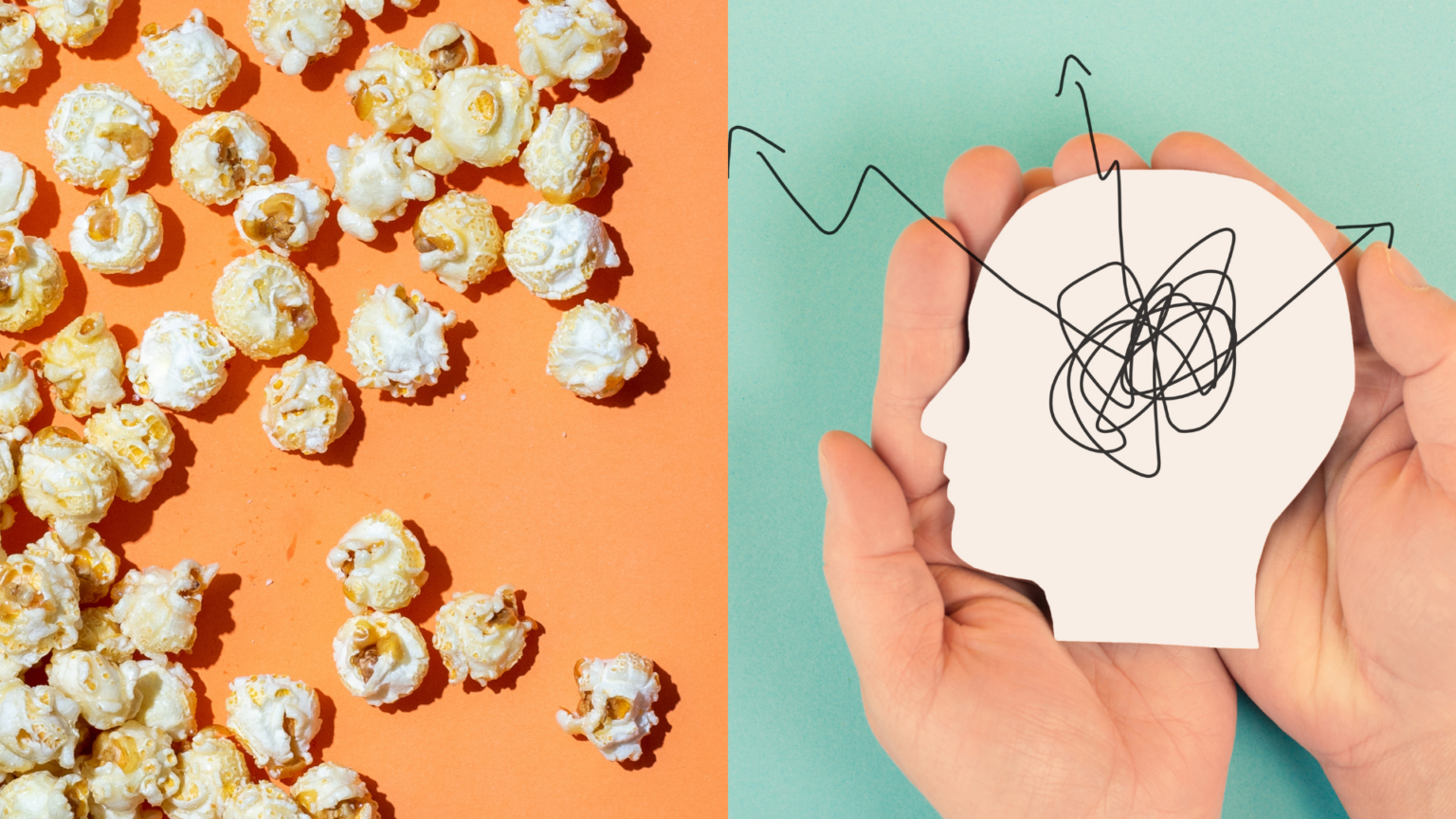In this fast-paced digital world, where information flows at an overwhelmingly high speed, it brings in ways that affect your mental health more than ever before.
The term Popcorn Brain is becoming popular among GenZ these days. It refers to the constant shifts in one’s thoughts into another, similar to how popcorn pops in while making.
Psychologists use this term to refer to the inability to focus on one task, which can be caused by anxiety, stress, or an information load from social media.
Table of Contents
Cause of Popcorn brain
Experts say the leading cause of popcorn brain is the use of social media. How social media is built with algorithms to keep the users hooked is alarming. The constant flow of short-span information gives users a dopamine surge.
The continuous need for attention and task shifts impair the ability to focus, resulting in mental restlessness.
Psychologist Gloria Mark says our attention span has decreased in recent years.
She and her team measured the average attention span on a screen in 2004. They discovered the average attention span is around two and a half minutes! Throughout the years, it decreased to 75 seconds in 2012. At present, the average attention span has come down to 45 seconds.
Impact of Popcorn Brain on Mental Health
High stress and anxiety
The constant flow of information and shifts in thoughts can magnify your stress and anxiety. The constant urge to compare yourself with others online and coping with unsatisfactory results and issues can all add up to make your brain feel hazy. Such bombardment of stimuli without giving the brain time to relax can impair your mental health further.
Poor concentration
Along with the constant stream of information comes our low attention span. Difficulty in concentration can increase your level of frustration and can lead to low self-esteem. The inability to focus on one task efficiently can lead to a sense of inadequacy and thus overwhelm your brain with feelings. Such symptoms ultimately impact your mental health and leave you with a feeling of isolation.
Relationship Issues
Popcorn brain can affect your ability to focus on interpersonal relationships. The constant shift in thoughts can neglect the attention you need to give to your relationships. The lack of focus makes you feel distant and uninterested. It further hinders communication and the quality of relationships.
Poor decision making
With all the struggles with your mental health, popcorn brain can make you make hasty and impulsive decisions. The tendency to get distracted can affect your ability to process information and lead to errors in your decision-making. A popcorn brain can also cause you to overlook certain aspects or alternatives to your choices, hindering your ability to make balanced choices and affecting your daily life and mental health overall.
Unhappiness
While constantly wandering in your imaginary world of popcorn brain, you may often miss on enjoying present moments. Elevated levels of stress and anxiety can add up to reduce your satisfaction with things and happiness.
How do you deal with popcorn brain?
You can address the popcorn brain problem by implementing a few steps. Experts say these steps can help you improve your lifestyle and safeguard your mental health.
- Make some lifestyle changes by incorporating mindful practices in your daily routine. Mindful techniques involve meditation, which enhances your focus and declutters your mental well-being.
- Set defined time limits for social media apps or any such app draining your attention for the whole day. Allocate your time to avoid checking your phone or messages with each pop.
- Create a practical and easy-to-follow daily routine. Refrain from sitting and aiming to do tasks altogether in a day. Take small steps and plan accordingly.
- Remember to add constant breaks to your routine. It will help avoid burnout and keep your mind fresh.
- Identify which task to prioritize—delegate where you can and finish the critical and urgent tasks as soon as possible.
- Make a balance between work/studies and life. Increased screen time cuts your potential time to socialize. Try to spend time with your friends and family more often in a week. Catch up and enjoy your time.
- Take small walks whenever you like. It can refresh your mind and body. Do regular workouts to avoid fatigue.
- Last but not least, give adequate sleep time to your body and mind. Taking rest is the key to being active.

3 Comments
Pingback: Healthy Food Crisis: Study Say 6.7M Indian Children Starving
Pingback: World Sleep Day 2024: What Are The Benefits of Sleep?
Pingback: Boost Gut Health: 10 Best Foods To Combat Digestive Issues